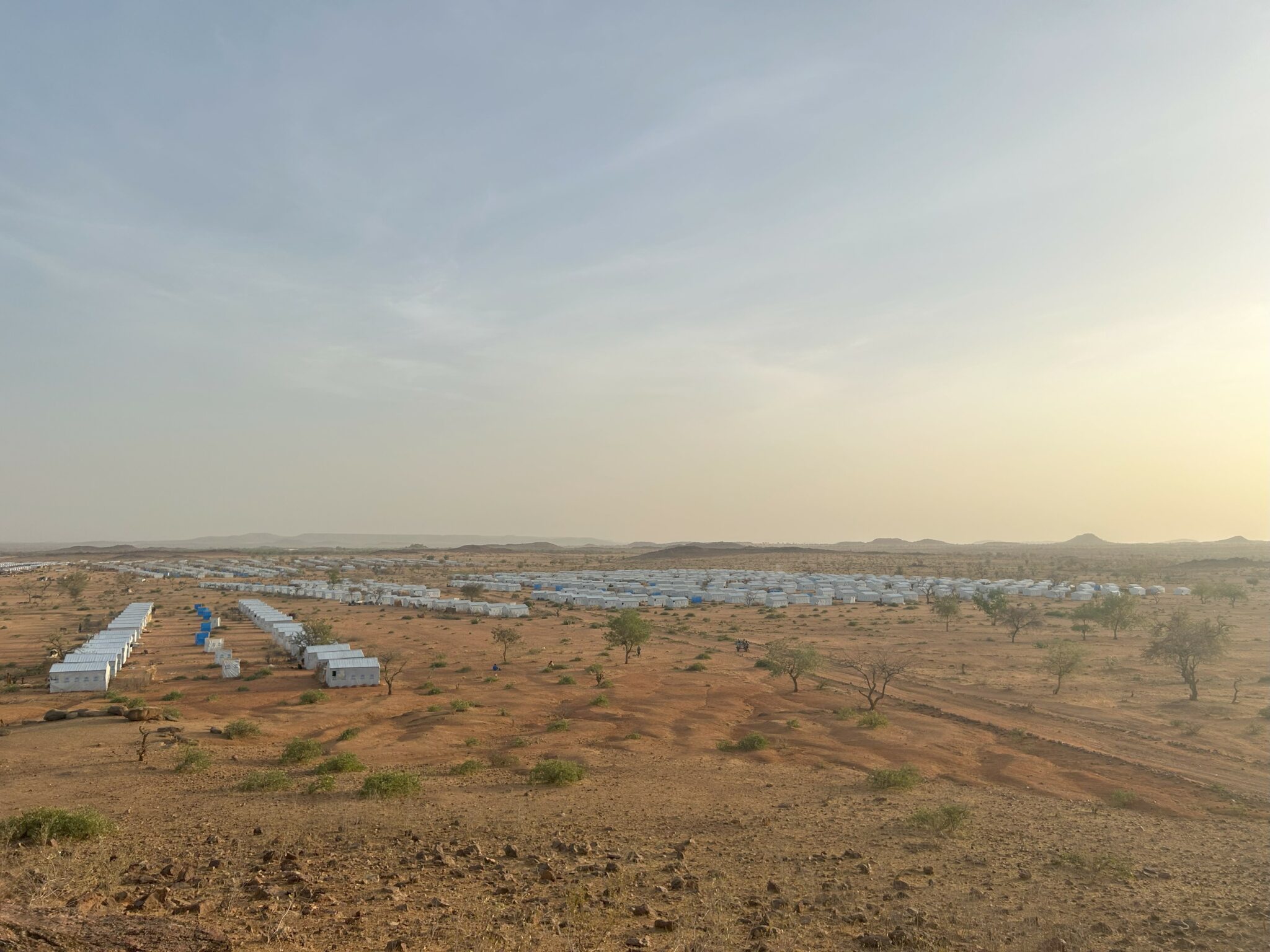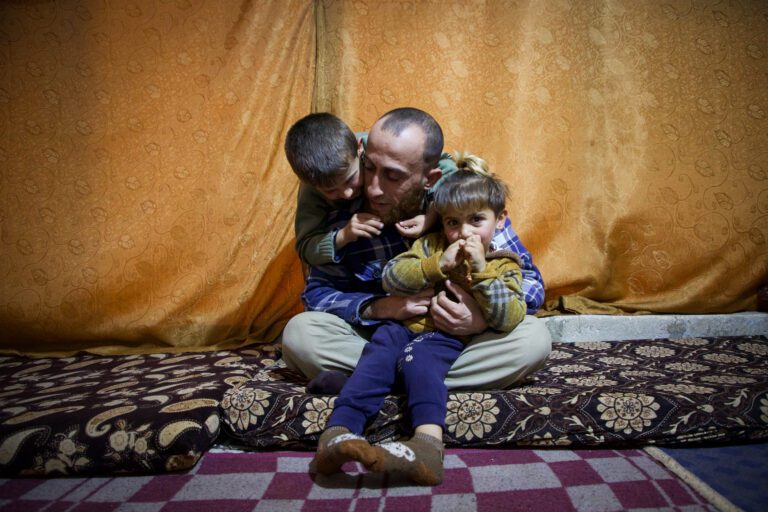“I have worked in some of the world’s most severe humanitarian disasters in the last 30 years, but I have never seen anything like this,” says an aid worker and representative for a government donor over a cup of instant coffee at the UN compound in Abéché, eastern Chad.
“The people arriving here have nothing. No water. No food. No protection. They come with gunshot wounds and serious traumas. Many of the children are malnourished. Families sleep in unorganised settlements by the border, on the ground in self-made tents made of sticks and cloth. I recently met a woman at the border who had been in labour for three days without any medical help. The crisis is so serious and extensive.”
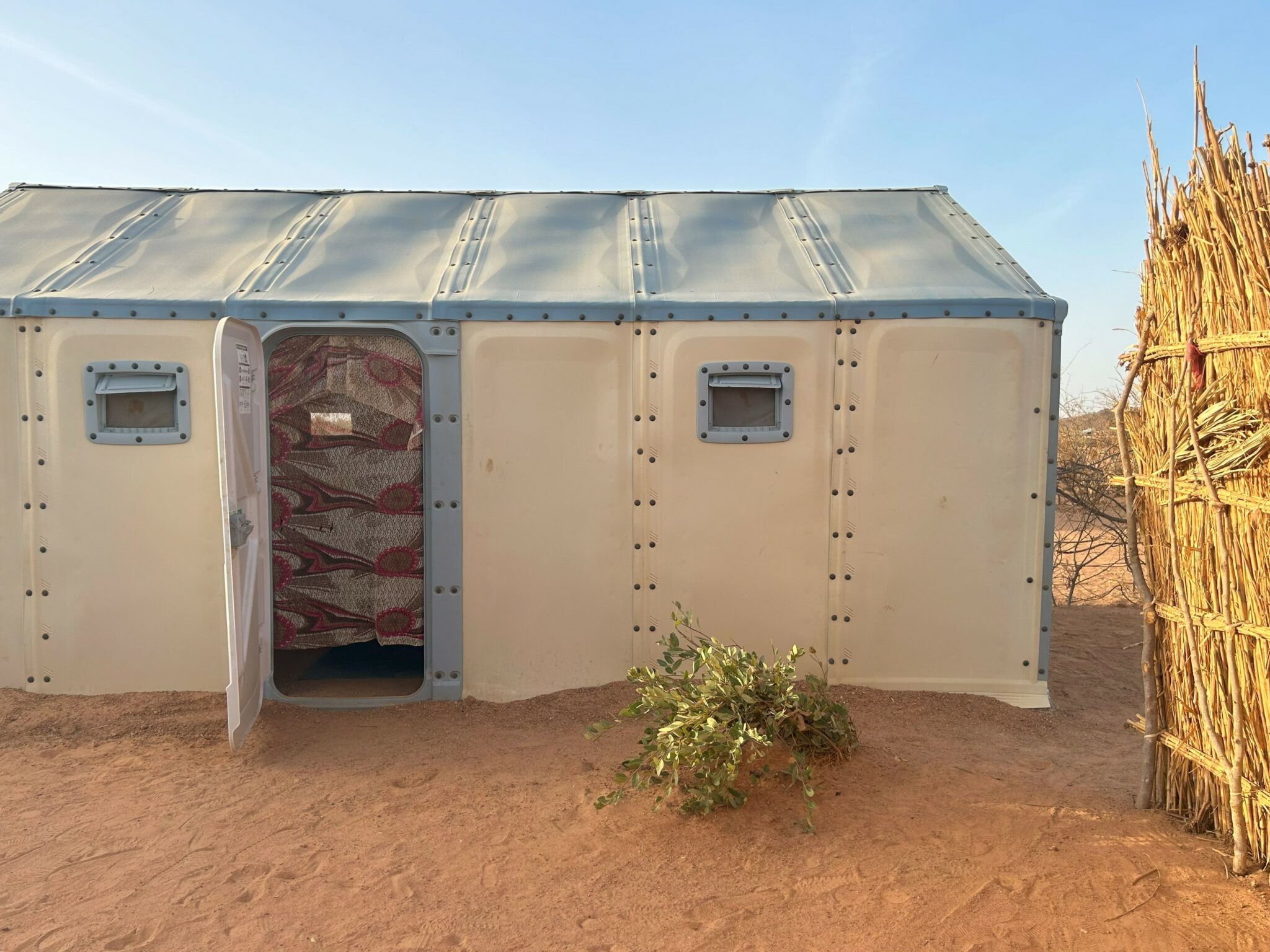
The world’s most severe refugee situation
Eastern Chad is home to more than 930,000 Sudanese refugees, 546,770 of whom arrived after the conflict began in Sudan on April 15, 2023, between the Sudanese Armed Forces (SAF) and the paramilitary Rapid Support Forces (RSF) in Khartoum. The conflict spread to Darfur and has impacted every region in the country. The UN refugee agency, UNHCR, expects another 250,000 people to arrive in 2024.
A large majority of refugees are women and children. Many have fled on foot from western Sudan through the desert at night with small children and elderly family members. There have been reports of rapes against women in Sudan and increased cases of malnutrition among children in Sudan and the neighbouring countries, and, recently, an outbreak of hepatitis E in several of the camps in Chad.
IKEA Foundation-funded shelters house thousands of people
With support from the IKEA Foundation, Better Shelter sent 3000 shelters to UNHCR in Chad last year. UNHCR has built these and other types of shelters in several camps along the border with Sudan. UNHCR and other humanitarian organisations are responsible for water supply and building latrines in the camp, while the World Food Program distributes food and cash.
Another 40,000 shelters are urgently required to house families living in the border town of Adré and other spontaneous sites along the border.
As the lead agency for refugee affairs, UNHCR coordinates the Regional Refugee Response Plan, seeking $1.4 billion in funding to support nearly 2.7 million people across five countries bordering Sudan (of which $630 million for Chad). The crisis is estimated to receive a small proportion of the financing required, and humanitarian organisations and UN agencies will continue to be forced to make impossible priorities.
Breaking the fast with rice and peanuts
Kobra, thirty years old, lives in a small camp in Farchana with her four children. The family escaped from their home as they heard the gunshots approaching in the evening last summer. They managed to escape but saw their house being raided and burned down to the ground. Kobra was separated from her husband as they fled for their lives, and she hurt her left eye when she accidentally ran into a tree branch in the dark. She has not been able to contact her husband since and does not know where he is or if he is alive. Someone said he may have gone to Libya. She still borrows a mobile phone to call him every week. But there is still no answer.
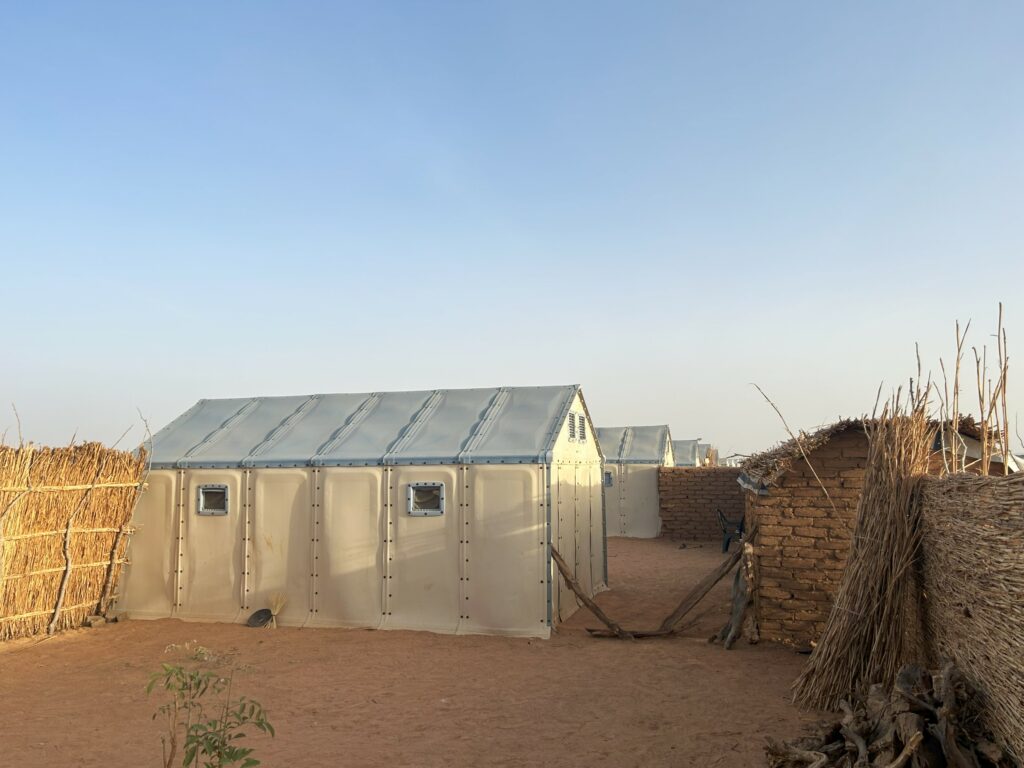
Kobra sits in the shade on a patio made of plaited sorghum grass and sticks. “I built it myself,” she says. She will break the fast with her children and mother in a few hours. Every day, she serves peanuts with onions and rice cooked in water from the well (situated just outside the camp) in pots and pans over an open fire. Before then, she must walk in the 42-degree heat to the edge of the camp, over the mountain, and cut branches from the sparsely grown trees. Going there and coming back takes about two hours. The landowners are there more often to stop the refugees from cutting down the trees on their land.
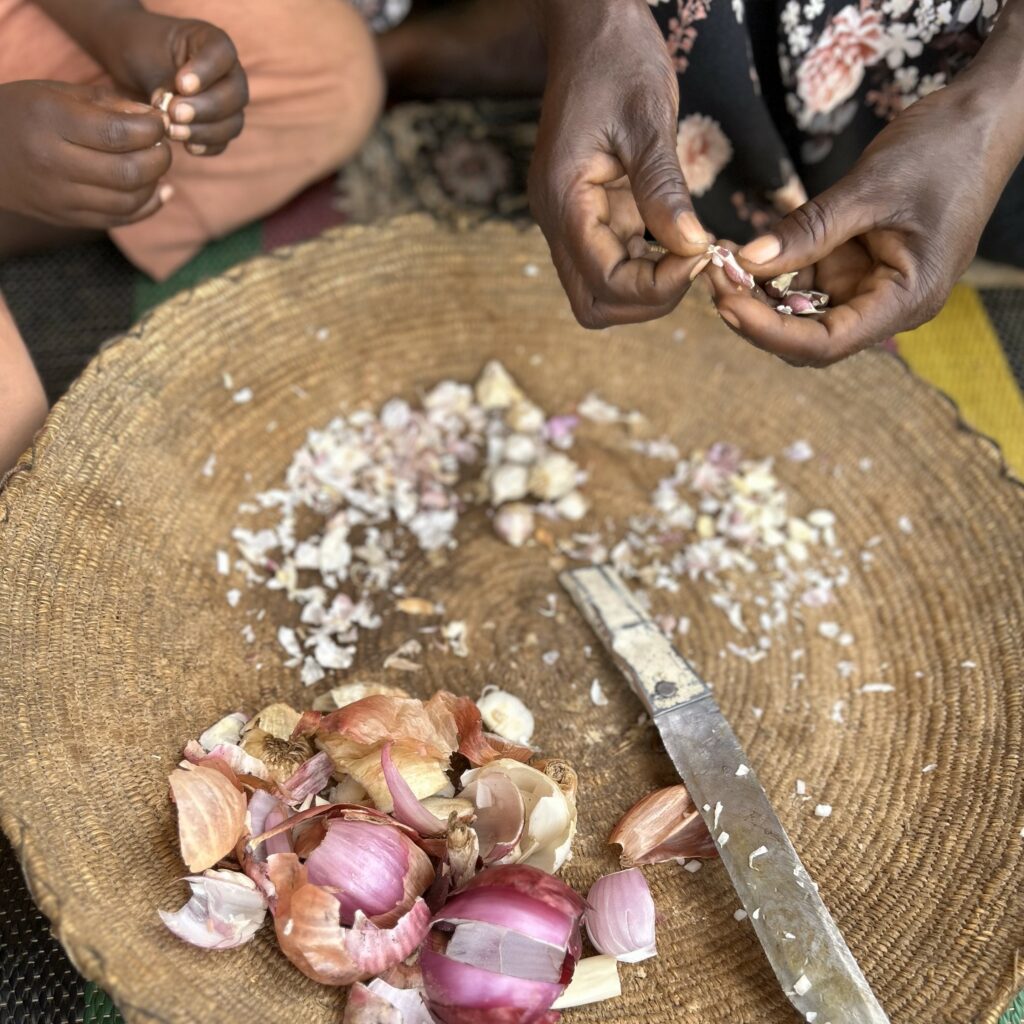
“What should I do? Bring my children with me over the mountain or leave them alone for several hours?”
Kobra, 30, Sudanese refugee in Chad
There are two taps in the camp in Farchana, home to 38,000 people. Connected to pipes, the water has been drawn from a kilometre away. But it is far from enough for everyone, and people are forced to go to the outskirts of the camp, where a two-meter-deep hole has been dug in the ground. Women and children climb to the bottom and scoop up cloudy, yellow water in their buckets from the pool of water at the bottom.
Many have gastrointestinal problems, which they believe are due to drinking the water. They have far from enough clean water to clean their pots and plates.
Resilience amidst suffering
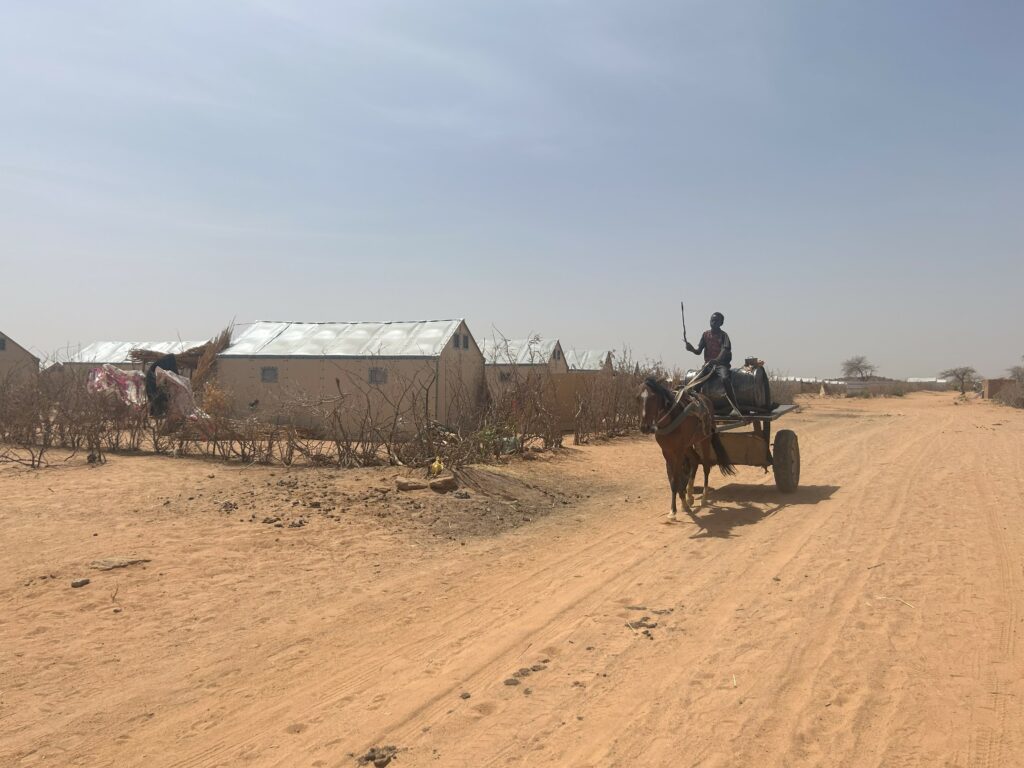
Despite the hopeless situation, with UN agencies and aid organisations doing what they can with minimal funding, people show unimaginable strength and wealth of initiative. A teenage boy has set up a mobile charging station powered by a car battery, where people can hand in their mobiles and charge them for a small sum. In front of another shelter, women sit in the shade and make plates and baskets of plaited grass, which they sell at the nearby market. With the money, they buy food. A seventy-year-old woman in the neighbouring shelter sells the one egg her chicken lays daily. She cooks the rice she received from the World Food Program with tomatoes and onions for that money.
In a shelter nearby lives a seventeen-year-old boy alone. His mother was shot dead in the war, and his father was killed in violence several years ago. The boy was shot in the leg during his flight and is still experiencing constant pain throughout his leg and up his back. He has made new friends in the camp, with whom he spends much time discussing football and movies. They watch all the big games in a “TV club” in the camp – a two-screen cinema housed in a shelter powered by a petrol generator.
Humanitarian organisations say that these people will be here for many years. Next to this camp is another one established in 2003, and people there have not yet returned.

